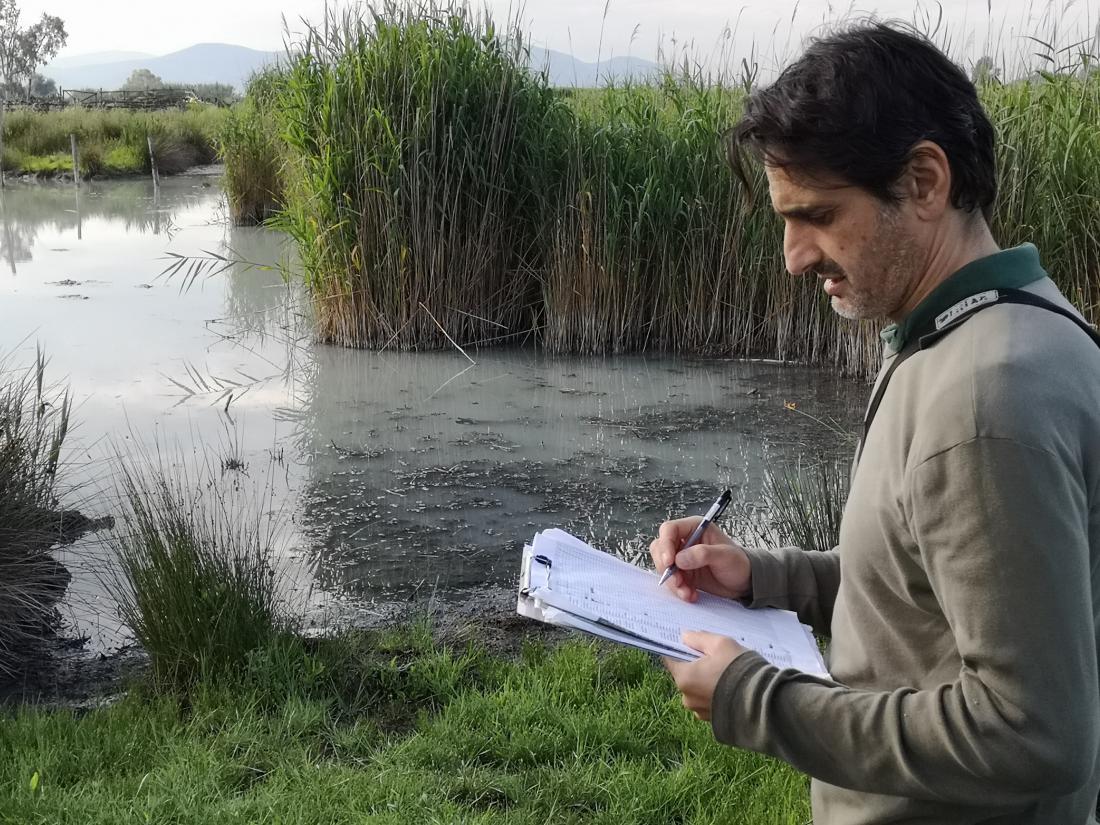NAWAMED project and constructed wetlands: why it is important to foster the ecosystem services in Italy

The Province of Latina, lead partner of NAWAMED project, aims to show the synergies among the projects it has been managing on the themes of Nature-Based Solutions (NBS), ecosystem services and biodiversity. In order to better deepen the connection between the tackled issues, an online interview was conducted with Mr Giuseppe Dodaro, expert in green infrastructures and management of natural areas, coordinator of natural capital, green infrastructures and agriculture area of the Sustainable Development Foundation.
The role of constructed wetlands for the enhancement of ecosystem services in Italy is relevant for many reasons. Italy - due to its location and some climatic and orographic characteristics - is in fact particularly exposed to the effects of climate change, especially in cities, which are more affected by both the increase of the periods of water scarcity and the higher frequency of extreme weather events.
For these reasons, a greater diffusion of NBS is desirable, since they allow for a reduction in withdrawals - for example by increasing reuse - and generally for a more sustainable use of the water resource
In this scenario, the role of constructed wetlands can be particularly relevant, as, if properly designed, they can perform several functions, not only as purification systems, but also as water collection and lamination basins, thus contributing to the supply of some regulation services.
Furthermore, if they are of adequate size and are built following well-defined criteria, they can support the conservation of biodiversity, recreating environments occupied by vegetation typical of humid ecosystems and acting as a site of refuge, rest, reproduction and nutrition for many species of fauna
Constructed wetlands play a particularly important role when they are located in highly anthropogenic areas such as peri-urban or intensively cultivated zones. Obviously, the vegetational populations that are recreated - depending on their type and extent - can also contribute to the supply of other regulation & maintenance ecosystem services, such as, for example, the absorption of CO2 and the mitigation of the negative effects of heat islands.
Constructed wetlands, moreover, can provide cultural ecosystem services. If they are adequately designed - as mentioned above - they become semi-natural areas in which recreational activities, environmental education and scientific research can be. In these months marked by the coronavirus lockdown, our nature deficit has become particularly evident: citizens have found themselves closed in their apartments and have felt the need to be able to walk in the green, discovering that they can experience pieces of nature even at a short distance from their home
As regards the barriers to the implementation of interventions on our territory, Mr Dodaro believes that there is still a resistance mainly deriving from the technical offices of the Italian public administrations.
There is a class of public officials and managers within local public bodies who believe that these solutions are still not very effective on a large scale, and who do not have an adequate preparation to understand the usefulness and versatility of these applications, especially in isolated contexts. Conversely, social acceptance is absolutely not a problem when the systems are well explained and communicated and, above all, they are well managed and well maintained
There are many Recovery Fund loans to regenerate the suburbs and make our buildings and neighbourhoods more efficient and sustainable. From this point of view, there is a strong sensitivity and a strong “bottom up” push by citizens who want to live in more liveable and greener neighbourhoods.
Moreover, the European Biodiversity Strategy placed the emphasis on improving the quality of the hydrographic network, creating a double opportunity: implementing interventions for biodiversity, which at the same time improve the quality of the ecological status of water bodies. There are tools and opportunities, it's just a matter of seizing them and making the most of them
The Province of Latina with the NAWAMED project in synergy with the UIA project - Urban Innovative Action "UPPER - Urban productive parks for the development of technologies and services related to solutions based on nature" intends to carry forward these principles in the planning of NBS and ecosystem services in the provincial territory.









